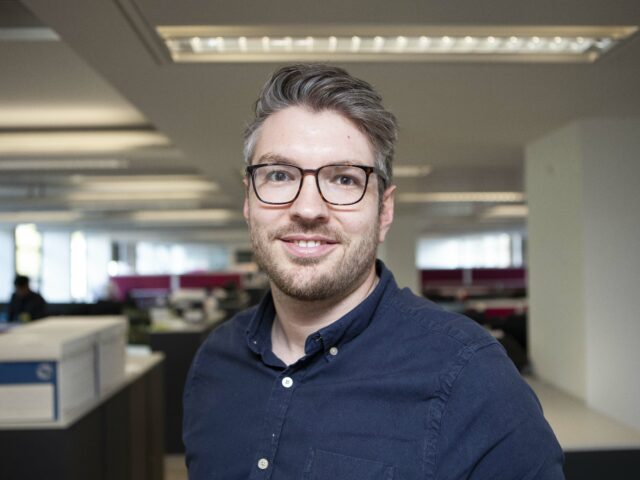University is about more than just learning your subject matter, it’s about developing yourself personally and learning multiple skills that you may have otherwise never come across so early in life. To understand this, Student Circuit spoke to 19-year-old Daniele Servadei, CEO and Co-Founder of Sellix, exploring his journey and the reasons why, despite his success, he is undertaking a university course.
Drives, interests, and background
“I started back when I was 13 or so, just doing random stuff with computers. I started learning programming languages, like Python or PHP, and then by learning those languages I started working on websites for small clients,” says Servadei. This is where he got his first taste of his passion, and also the first introduction to a space he would soon call home. “This was also when I received my first cryptocurrency transaction via Bitcoin, because I was actually too young to be formally paid!” he explains. From here, Servadei quickly “became really passionate about the online industry and cryptocurrencies.”
From these beginnings, Servadei would join a web development company as a software solution architect, utilising what he had self-learnt at a young age, working with AWS tools to develop infrastructure and Cloud-based solutions.
The business
Whilst at the company, and once he turned 18, he and his partner set-up Sellix as a solution to a problem that they noticed cropping up over and over again, global commerce. “It is really hard for both businesses and individuals to get paid from around the globe. Let’s say you’re in China selling to the US and you need to accept transactions… It’s actually really hard with current systems,” explains Servadei, who believes that the vision of democratising online commerce, especially with the blockchain, is crucial.
Something that initially started as a hobby and solution to their own problems, Sellix has now become a successful business that enables companies and individuals to commercialise globally with cryptocurrency integration.
What makes Sellix different to the traditional crypto-based/-integrated merchant platforms is that the business was created with different principles in mind, “we want to facilitate global commerce correctly, not just make some quick money,” says Servadei – noting that those companies who did this approach have largely “imploded” following the crypto crash witnessed in the past year. Servadei has made sure that Sellix remains noncustodial, meaning at no point does the company put its hands on its customer’s money. “Every merchant has their own wallet, and we use a private key to make and receive payments,” he says. “This establishes a sense of trust and enables us to have so many features other platforms cannot have.”
The up and downs of being a young CEO
“It’s been both challenging and rewarding, balancing responsibilities and at the same time making strategic decisions, it’s definitely been a steep learning curve,” says Servadei. “I began with zero experience in this field, I had no idea how to run a company. I had no idea how to manage developers or the staff under me, and it certainly has been a real challenge,” he continued. This is something that almost every young adult coming out of school experiences, that sense of the daunting unknown. But Servadei was eager to add that: “You’re going to make mistakes, and that’s ok.
“Mistakes are good because once you’ve made them you can make sure to never repeat them, it’s how we learn.”
Servadei’s young age as a CEO has also come as a double-edged sword for him and his company. Whilst on one side he has found that being so young has meant that “people tend to not believe in what you’re doing, or disregard you,” he has also found that with areas such as venture capital, which enjoy supporting a “good story,” it can have its perks.
It hasn’t been an easy ride though, Servadei would often have to juggle his regular schooling duties with being the CEO of a company, sometimes even having to “go to the bathroom at school to answer important business calls.” It was here that he learnt critical skills such as improvisation and time management, whilst also demonstrating that, although not ideal, it is certainly possible to achieve.
But overall, for Servadei at age 19, “it has been really exciting to be able to lead a team of professionals, be able to influence the direction of a company, command a vision for the future, and learn.”
Why university?
With all the success Servadei has had at such a young age, one might ask why he is still bothering with university? He explains: “I see going to university as not just an opportunity to learn more, but to also broaden my horizons, meet new people, and learn from those experiences.
“There is also a lot that structure learning can provide, especially in areas like business, strategies, and economics, that I, being in charge of a company, will need.”
“Those are the two principles for which I am going,” says Servadei, who is constantly looking for new ways to better himself. This is an important factor which is often overlooked with university attendance, it’s not entirely about what you learn as a part of your course(s), but also what you learn about being your own person and the life lessons which accompany this process.
A retrospective
Servadei had three things to say when asked about what he would’ve done differently and hoped that by disclosing them the younger generation might learn from his advice.
Firstly, he notes how he wished he had paid more attention to courses relevant to his passion, even if they aren’t necessarily relevant to your forte. “This is really important, and you realise this as you grow,” he says.
Secondly, Servadei attributes “fearing failure too much” as one of his biggest weak points. “I was constantly thinking [when setting up Sellix], ‘Oh my god, what if this fails?’,” he admits. But, as previously mentioned, he soon realised that failure is completely acceptable and a part of the process. “You should be making mistakes, otherwise there is something wrong,” he says.
Lastly, with his company, Sellix, Servadei wishes he had invested more in building a company culture from the very start, rather than “throwing it into the market and hoping for the best.” Sellix have since managed to create this culture after launching the product but having a culture from the very start, especially for decision-making, is crucial, and he emphasises its importance.




